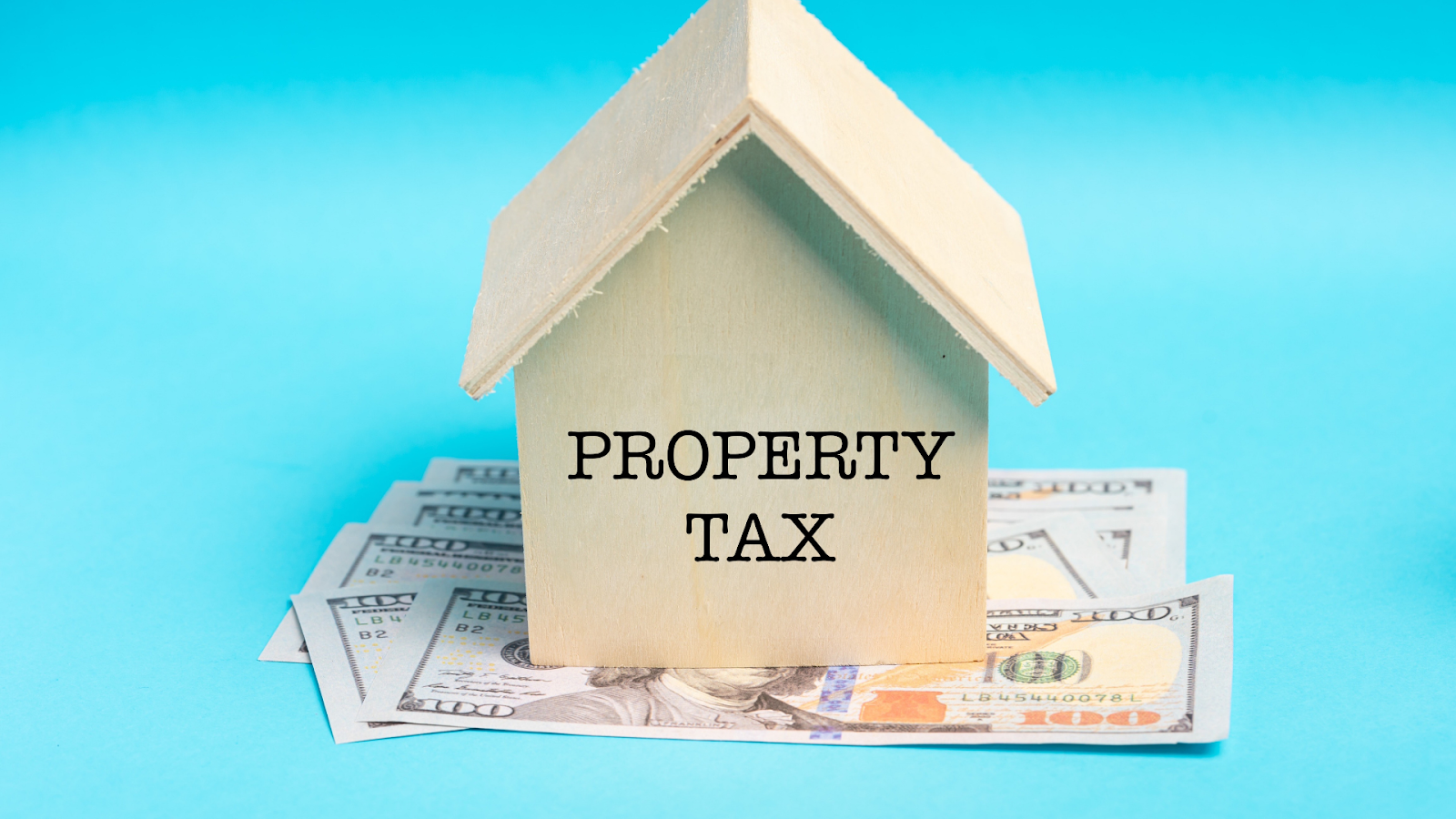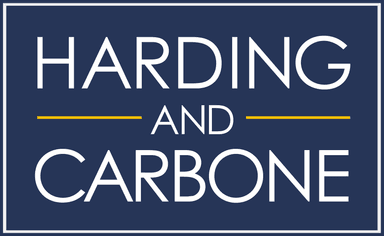
Breaking Down The Texas Property Tax Code For Homeowners
October 9, 2025
Key Takeaways:
- Key Players: Appraisal districts, ARBs, and taxing units work together to shape how Texas property taxes are calculated.
- Exemptions: Seniors, disabled homeowners, and veterans have access to exemptions that reduce taxable value and create lasting savings.
- Protest Evidence: Strong documentation, from comps to property records, gives homeowners a better chance at lowering their assessments.
Property taxes in Texas often feel confusing, especially with different terms, values, and deadlines that affect how much homeowners pay each year. The state’s property tax code outlines the rules for assessments, exemptions, and protests, but navigating it without guidance can be challenging. Knowing how the system works can give homeowners more confidence when reviewing their tax bill and deciding when to take action.
At Harding & Carbone, we have been at the forefront of property tax consulting in Texas for more than 40 years. Our team has represented thousands of property owners, helping them reduce tax liabilities and ensure fair valuations across both residential and commercial properties. As one of the state’s most trusted providers of property tax reduction services, we combine industry expertise with proven strategies that have consistently delivered results.
Key Players: Appraisal Districts, Review Boards, And Taxing Units
Understanding who is involved in the Texas property tax process is the first step toward managing your bill effectively. Three groups shape the way your property is valued, reviewed, and taxed, each playing a unique role in the system. By knowing what each of these key players does, you can better identify where property tax reduction services may help:
County Appraisal Districts: Setting Market Values
County appraisal districts estimate the market value of every property each year using local sales data and property characteristics. These values determine the starting point of your tax bill. If you want professional support in reviewing your appraisal, Harding & Carbone offers trusted property tax reduction services to help uncover savings opportunities.

Appraisal Review Boards: Hearing Protests
Appraisal review boards (ARBs) provide homeowners the chance to dispute valuations they believe are too high. The right evidence, from comparable sales to repair documentation, can influence the outcome. Explore how Harding & Carbone can prepare your case through proven property tax reduction services and learn more about our approach by visiting our services page.
Taxing Units: Setting The Rates
Taxing units like school districts, cities, and counties set the rates that apply to your taxable value. While rates themselves cannot be challenged, knowing which entities collect them explains changes in your bill each year. To better understand how these rates fit into the bigger picture, connect with our team through the Harding & Carbone contact page for personalized guidance.
Exemptions For Seniors, Veterans, And Disabled Homeowners
The Texas property tax code provides relief for groups who may face unique financial challenges. Seniors, disabled homeowners, and veterans all have specific exemptions that can reduce their taxable value. Understanding these options is key to maximizing potential savings:
Senior Citizen (65+) Exemption
Homeowners who are 65 or older may qualify for an additional homestead exemption on their primary residence. This exemption lowers taxable value and sets a ceiling on school district taxes, offering stability in later years. For tailored support in applying these benefits, Harding & Carbone’s property tax reduction services can simplify the process.

Disabled Person Exemption
Those with qualifying disabilities receive the same exemption as seniors, regardless of age, along with a tax ceiling on school district rates. This exemption helps families manage long-term property expenses. To review your eligibility and apply correctly, our team is available through the Harding & Carbone contact page.
Veteran And Surviving Spouse Exemptions
Disabled veterans may qualify for property tax reductions based on their disability rating, and in some cases, a full exemption. Surviving spouses of disabled veterans or service members killed in action may also be eligible. Visit Harding & Carbone to learn more about these exemptions and how our services can help you claim them effectively.
How To Calculate Your Texas Property Tax Bill
Property tax bills may look complicated at first, but they follow a clear sequence that can be broken into steps. By reviewing each part of the calculation, homeowners can identify mistakes and apply the correct exemptions. Here is how the process works:
Step 1: Find Your Assessed Value
Your county appraisal district estimates your home’s market value each year, usually based on recent sales and property features. This figure becomes the foundation of your tax bill. If you want a professional review of this valuation, Harding & Carbone’s property tax reduction services can help spot errors.
Step 2: Apply Exemptions
Exemptions lower the taxable value of your property, often saving homeowners hundreds or even thousands of dollars. Common examples include the homestead, senior, disabled, and veteran exemptions. To explore which exemptions apply to you, visit Harding & Carbone for detailed guidance.
Step 3: Review Your Taxing Units And Rates
Each property is subject to multiple taxing units, such as school districts, counties, and special districts. These entities set their rates annually, which collectively determine the total tax rate applied to your home. For assistance in reviewing how these rates shape your bill, reach out through the Harding & Carbone contact page.
Step 4: Do The Math
Once exemptions are applied, multiply the taxable value by the combined tax rate. This simple formula provides an estimate of your annual bill. For additional insight on how this calculation affects you, Harding & Carbone offers property tax reduction services to guide homeowners through each step.

Step 5: Watch For Appraisal Caps
Texas law limits homestead value increases to 10 percent annually, not including new improvements. Reviewing your appraisal to ensure this cap is applied correctly can prevent inflated bills. Harding & Carbone can help confirm compliance by offering professional review through our services page.
Evidence That Carries Weight With ARB Members
When protesting a property tax assessment, the strength of your evidence often determines the outcome. Appraisal review boards look for clear, credible documentation that supports your claim. The following types of evidence are especially valuable:
Comparable Sales
Recent sales of similar homes are one of the most persuasive forms of evidence. Adjustments for differences such as square footage or condition make comparisons more accurate. For guidance in selecting the right comps, Harding & Carbone provides property tax reduction services tailored to building strong cases.
Photos Of Property Conditions
Photographs showing issues like repairs, outdated features, or maintenance needs can demonstrate why a property should be valued lower. Pairing photos with written estimates from licensed contractors makes the evidence more persuasive. To prepare this type of documentation effectively, connect with us through the Harding & Carbone contact page.
Independent Reports And Records
Documents such as appraisals, inspection reports, or insurance claims add third-party credibility to your case. Even building permits can support a claim by showing changes in size or features. Learn how Harding & Carbone can help you gather and present these materials by visiting our services page.
Property Record Card Review
Errors in the appraisal district’s property record card, such as incorrect square footage or missing features, can significantly affect valuation. Bringing corrected information supported by photos or documents can be very effective in front of the ARB. Visit Harding & Carbone to see how our expertise helps homeowners uncover and correct these critical details.
Final Thoughts
The Texas property tax code can feel overwhelming, but knowing your rights and the options available gives you a clear advantage. From understanding exemptions to preparing evidence for a protest, homeowners have multiple opportunities to reduce their tax burden. Harding & Carbone has decades of experience offering property tax reduction services that help simplify these steps.
Our team combines detailed data analysis with practical strategies, giving clients the tools to secure fair valuations. If you want to explore how these services apply to your specific situation, reach out through the Harding & Carbone contact page. For additional resources and guidance, visit Harding & Carbone to see how we continue to support Texas homeowners year after year.
Read Also:
- Brazoria County Taxes: A Guide To Rates, Exemptions, And Due Dates
- Everything You Should Know About Galveston County Property Taxes
- How To Manage Property Taxes In Harris County
Frequently Asked Questions About The Texas Property Tax Code And Property Tax Reduction Services
What role does a property tax consultant play in the reduction process?
A property tax consultant reviews your valuation to identify errors or overestimations that may increase your bill. They prepare evidence such as comps, records, and photos to support your case during hearings. Their expertise often leads to stronger results than homeowners achieve on their own.
Are property tax reduction services only useful for large or high-value homes?
No, these services apply to properties of all values, since inaccurate appraisals can affect modest homes just as much as expensive ones. Even small discrepancies in square footage or condition can lead to unfair tax increases. Homeowners with any type of property can benefit from professional review.
Can investment properties qualify for property tax reduction services?
Yes, consultants can also assist with rental homes, multifamily units, and commercial real estate. These properties are appraised differently from primary residences, which makes professional guidance especially valuable. Reducing taxes on investment properties can also improve cash flow for owners.
How long does the property tax protest process usually take?
The process begins shortly after appraisal notices are sent, with deadlines typically falling in mid-May. Hearings may take place within weeks or months depending on the county’s schedule. From filing to resolution, most protests are completed within the same tax year.
What happens if a property tax protest is unsuccessful?
If the board upholds the appraisal district’s value, homeowners still have other options. They may choose to pursue binding arbitration or file a lawsuit in district court. Although these steps require more time, they can provide another chance to achieve a fair outcome.
Do property tax reduction services cost a fixed fee?
Many consultants work on a contingency basis, meaning their fee is tied to the amount of savings they achieve. This structure reduces upfront costs for the homeowner. It also motivates the consultant to pursue the best possible results.
Can property tax reduction services help businesses as well as homeowners?
Yes, commercial properties often rely on these services because valuations can greatly impact operating expenses. Large retail spaces, office buildings, and warehouses are just as vulnerable to inflated assessments as homes. Businesses often see significant financial relief from professional representation.
Are there deadlines for hiring a property tax consultant?
Yes, homeowners must typically act by May 15 or within 30 days of receiving their appraisal notice. Missing this deadline means you may lose the right to protest for that year. Hiring a consultant early gives them time to build a strong case.
Is it possible to reduce property taxes without attending the protest hearing?
In many counties, consultants are authorized to represent homeowners without them being present. This allows the case to move forward while saving the homeowner time. It also ensures the consultant can present evidence clearly and effectively.
What makes professional property tax reduction services more effective than going alone?
Professionals have access to market data and valuation methods that are not easily available to the public. They know how appraisal districts evaluate evidence and how to frame arguments that resonate with review boards. This level of experience often makes the difference between a denied protest and a meaningful reduction.
